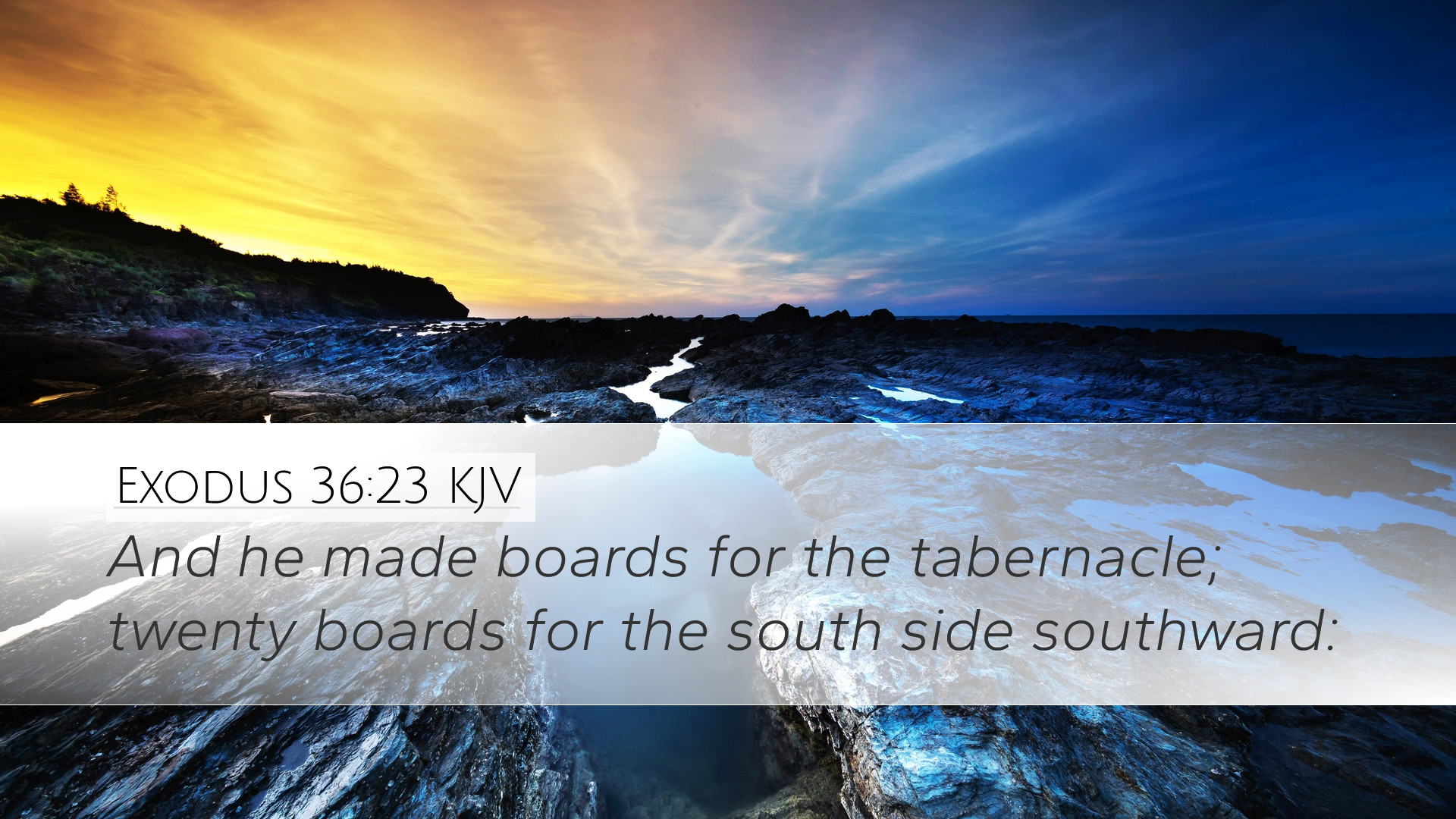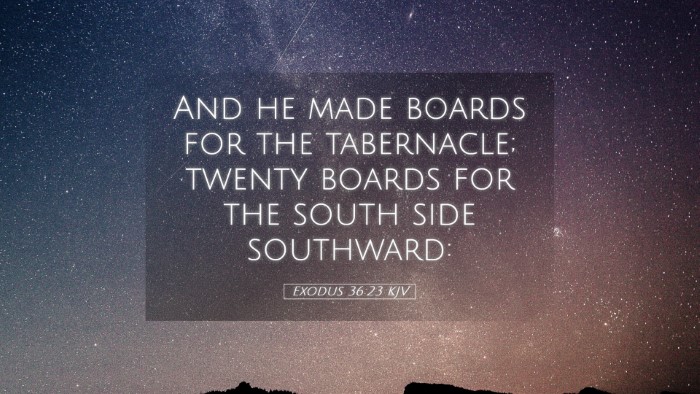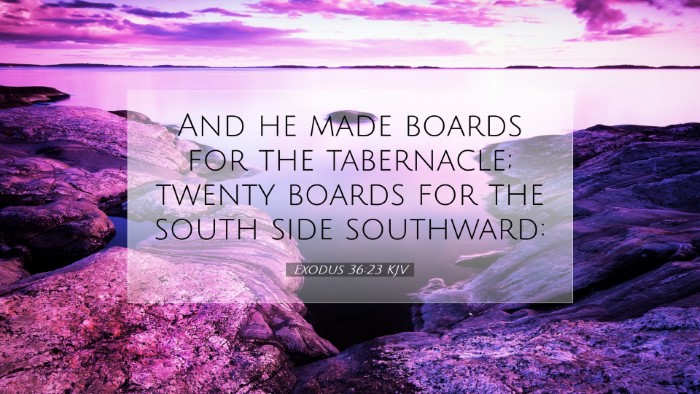Exodus 36:23 Commentary
Verse Reference: Exodus 36:23
Text: "And with the other he made the boards for the tabernacle toward the west." (Exodus 36:23, ESV)
Overview
Exodus 36 marks a significant moment in the narrative of the Israelites as they construct the Tabernacle, a dwelling place for the Lord among His people. The verse presents us with the specific components of this sacred structure, focusing on the boards that form its western side.
The Significance of the Tabernacle
Understanding the Tabernacle's construction is vital for grasping God's desire to dwell with His people. The tabernacle serves as a physical manifestation of God's presence, illustrating His accessibility and holiness:
- Matthew Henry emphasizes the Tabernacle as a place where God meets His people, highlighting that every detail in its construction was divinely inspired.
- Albert Barnes notes how the layout of the Tabernacle reflects God's order and the hierarchy of His covenant with Israel.
- Adam Clarke draws attention to the symbolism of the Tabernacle, interpreting it as a foreshadowing of Christ and His Church.
Exegesis of Exodus 36:23
In this verse, the mention of "the boards for the tabernacle" indicates a meticulous and structured approach to worship and the spaces designated for divine service. The Tabernacle's structure is described using the terms applied to everyday constructions, which conveys its both earthly and heavenly significance:
- Henry suggests that the boards symbolize the unity and support of the community of believers, where each board holds a part of the structure together.
- Barnes further elaborates that the difference in orientation—east to west—mirrors the concept of the separation between God and man, with the west representing the direction of the Holy of Holies, where God's presence is most strongly felt.
- Clarke interprets the western boards as indicative of spiritual goals, suggesting that believers are always moving toward the 'most holy place' through proper worship and community.
The Symbolism of the Boards
The boards themselves carry rich symbolism:
- Material and Strength: Made of acacia wood overlaid with gold, these boards signify both resilience and divine beauty. The duality of their construction reflects humanity's strength in God and the divine covering over our frailties.
- Divine Specification: Every board was crafted according to God’s precise specifications, highlighting God's sovereignty and the importance of adhering to His commands in worship.
- Interconnectedness: The boards were joined together, symbolizing the unity of believers within the Church and their collective identity as the body of Christ.
Theological Implications
The implications of Exodus 36:23 extend beyond the historical context and reveal deeper theological truths:
- Access to God: The passage indicates that while God is transcendent and holy, He is also immanent, desiring a relationship with His people. The construction of the Tabernacle demonstrates God's provision for atonement and reconciliation.
- Worship and Holiness: The detailed construction challenges modern readers to reflect on the nature of worship. True worship involves following God's guidelines and yielding to His holiness.
- Christological Connection: The Tabernacle foreshadows Christ, the ultimate mediator between God and humanity. Just as the boards formed the physical Tabernacle, Christ constructs a spiritual union through His sacrifice.
Practical Application
For pastors, students, and theologians, Exodus 36:23 encourages several practical reflections:
- Community Building: Just as the boards support the structure of the Tabernacle, so too are we called to support and uplift one another within our congregations.
- Dedication in Worship: Each detail of the Tabernacle points to the care and dedication we should employ in our worship practices, seeking excellence in our offerings to God.
- Understanding God's Presence: This verse invites deeper contemplation of how we encounter God's presence in our lives and the environments we create for worship today.
Conclusion
Exodus 36:23, while simple in its depiction of construction, invites profound reflection on the nature of God's relationships and the importance of worship. By delving into the insights gleaned from public domain commentaries, we are challenged to discern the significance of our actions as we pursue holiness and unity both in our personal walks and within the broader body of Christ.


